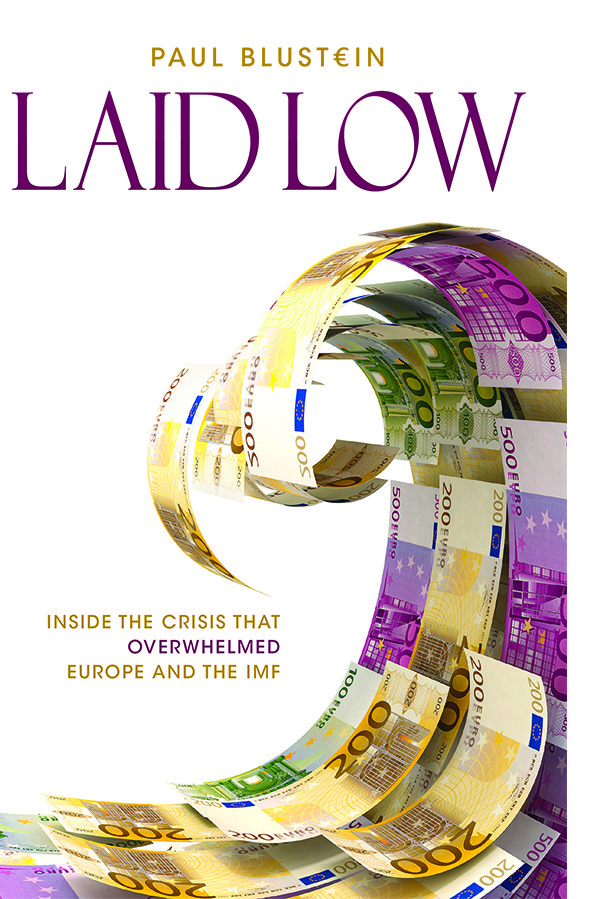Laid Low chronicles the International Monetary Fund’s role in the euro-zone crisis. Opening with the sensational arrest of IMF Managing Director Dominique Strauss-Kahn during a pivotal point in the crisis, the book makes clear that this sordid episode was only one in a series of setbacks for the IMF as financial conflagration spread from Greece to Ireland, Portugal, Spain, Italy and Cyprus — threatening to engulf a region comprising nearly one-fifth of world economic output.
Journalist Paul Blustein lays bare how the IMF joined in bailouts that all too often piled debt atop debt and imposed excessively harsh conditions on crisis-stricken countries. As the book reveals, IMF officials had grave misgivings about a number of these rescues, but went along at the insistence of powerful European policy makers — to the detriment of the Fund’s credibility, with disheartening implications for the management of future crises. The narrative concludes with the clash between Greece’s radical Syriza government and the country’s creditor institutions that reached a dramatic climax in the summer of 2015.
Reviewers from leading publications have lauded Blustein’s previous books on financial crises as “gripping,” “riveting,” “authoritative,” and “superbly reported.” The Economist said his first book “should be read by anyone wanting to understand, from the inside, how the international financial system really works.” That is all the more true of Laid Low, where Blustein again masterfully applies journalistic skills and methods — in-depth interviews, confidential documents, financial forensics and the craft of great storytelling — to recount the biggest and most risk-laden crisis the IMF has ever faced.



